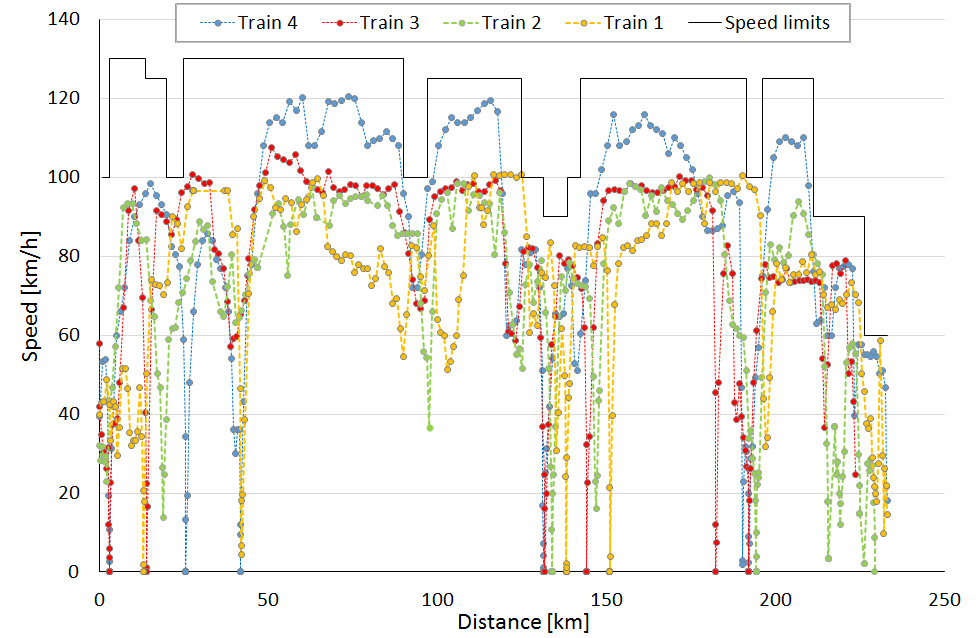
The increasing competitiveness amongst transport modes has recently lead rail operators to start collecting microscopic data on energy consumptions. Main aim is to analyze and optimize energy efficiency during operation. It is an incredible opportunity for researchers to access to a huge amount of data for the development of new strategies and solutions, which were unexplored until now.
In the next future, transport systems will be completely reinvented, due to the impacts of technological innovations, such as autonomous driving and hybrid or fully electric vehicles, which are now the reality and not anymore a possibility. To face this revolution, railway systems need to considerably improve their operation side and to consider energy efficiency as a key element, so to keep being considered as an alternative in the transport system market.
Therefore, rail operators started collecting huge amount of data from onboard monitoring systems. Researchers at IVT are currently working with rail operators for the analysis and possible improvements of system performance, based on those big sets of data. This includes the development of suitable tools for generation of energy efficient train trajectories.
Researchers at IVT use a microsimulation-based optimization framework, which generates and evaluates optimal solutions, both at traffic management level (i.e. rail traffic schedules, reducing delays) and at single train operation level (i.e. speed profiles, increased energy savings).
The current research includes also freight trains operation, which combine a high heterogeneity in operation and train characteristics (in the figure, colored points are speed data collected on 4 different trains), with the need to reduce operative costs, e.g. energy consumption. First results on selected national routes showed potential energy savings between 17% and 11%, depending on rail traffic conditions, weather, rolling stock and infrastructure characteristics. Moreover, these results highlight the need of introducing automation in traffic management processes and technologies, for advanced train control. Within SCCER Mobilityprogram, IVT is now working on this topic following three main research streams:
- Multilevel database: Data acquisition and data analysis on energy consumptions at different levels of detail (e.g. single vehicle, station areas, national networks, etc.) and time scales.
- Models enhancement. Calibration and validation of rail simulation models. Uncertainty quantification and sensitivity analysis for optimization procedures. Development of systems supporting Automatic train operation (ATO) and /or Driving Assistance System (DAS).
- Generation of optimal strategies and solutions. Generation of energy efficient solutions under specific constraints and for different services (offline and online, freight trains, passenger trains).
Valerio De Martinis is postdoctoral researcher at IVT since 2014. His research activities focus on simulation and optimization techniques for improving energy efficiency in rail operation. He is involved in the SCCER Mobility program with a specific project on energy optimal operation of freight trains. Latest publication on this theme.
Francesco Corman is professor of Transport system at IVT. Previously professor at TU Delft and KU Leuven, he joined ETH in 2017. His main fields of research include operation and control of public transport systems, rail traffic management, logistics and maintenance.